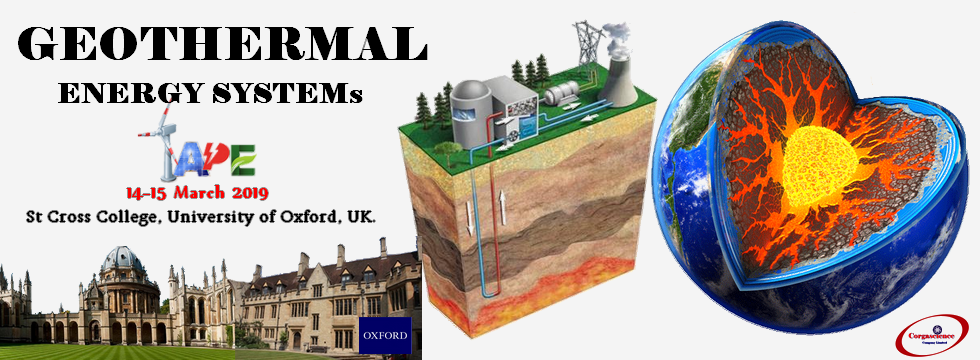

Pr. Andreas Poullikkas
Chairman, Cyprus Energy Regulatory Authority, Cyprus
Talk Title
Development of future sustainable energy systems and strategies towards 2050
Talk Abstract
The energy industry is one of the few industrial sectors, which affect prosperity of every sphere of economic and social life and exert a direct influence on general technological progress. Much of the world’s energy, however, is currently produced and consumed in ways that could not be sustained if technology were to remain constant and if overall quantities were to increase substantially. The need to control atmospheric emissions of greenhouse and other gases and substances will increasingly need to be focused on efficiency and sustainability in energy production.
A sound energy policy should encourage a clean and diverse portfolio of domestic energy supplies. Such diversity helps to ensure that future generations will have access to the energy they need. Renewable energy can help provide for our future needs by harnessing abundant, naturally occurring sources of energy, such as the sun, the wind, and biomass. Effectively harnessing these renewable resources requires careful planning and advanced technology. Through improved technology, we can ensure that clean, natural, renewable and alternative energy sources will be used in the future.
Renewable and alternative energy sources will not only help diversify world's energy portfolio but they will do so with few adverse environmental impacts. Alternative energy includes alternative fuels and the use of traditional energy sources in untraditional ways, such as natural gas reforming leading to the production of hydrogen.
The keynote speech will cover the development of future sustainable energy systems and strategies towards 2050. The European Union's energy policy will be discussed, the main long-term goal of which is the conversion of the existing energy system, now heavily dependent on fossil fuels, to a sustainable energy system based on differentiated energy sources of higher energy efficiency. An optimum scenario leading to hydrogen economy will be presented and the relevant energy cost towards 2050 will be discussed and justified through various examples of the use of sustainable energy technologies.
Short Biography
Dr. Andreas Poullikkas holds a Bachelor of Engineering (B.Eng.) degree in mechanical engineering, a Master of Philosophy (M.Phil.) degree in nuclear safety and turbomachinery, a Doctor of Philosophy (Ph.D.) degree in numerical analysis and a Doctor of Technology (D.Tech.) higher doctorate degree in energy policy and energy systems optimization (with emphasis on renewable energy technologies) from Loughborough University, U.K. He is a Fellow of the Institution of Engineering and Technology (FIET).
He is currently the Chairman of the Cyprus Energy Regulatory Authority (CERA) and the Chairman of the Cyprus Energy Strategy Council (both appointments by the President of Cyprus). In his professional career he has worked for academic institutions and for the industry, such as, a Visiting Faculty at Harvard University, USA, the Cyprus University of Technology (Professor of Power Systems and Chair of the Department of Electrical Engineering), the Natural Gas Public Company (Member of the Board of Directors), Cyprus (appointment by the Cyprus Government) and the Electricity Authority of Cyprus (founder and director of the Research and Development Department). He has over 25 years of experience on energy strategic issues and research and development projects related to the optimum analysis of power generation technologies with emphasis on sustainable technologies and on energy policy.
He is the Associate Editor of the Journal of Power Technologies, member of the Editorial Board of the journal Sustainable Energy Technologies and Assessments and the author of various peer-reviewed publications in scientific journals, book chapters, conference proceedings and the author of the eight books. He is, also, a referee for various international journals, serves as a reviewer for the evaluation of research proposals related to the field of energy and a coordinator of various funded research projects. He is a member of various national and European committees related to energy policy issues. He is the developer of various algorithms and software for the techno-economic optimization and environmental analysis of power generation technologies, desalination technologies and renewable energy systems.
Talk Keywords
energy system; power system; energy economics, renewable technology.
Target Audience
Students, Post doctoral, Industry, Doctors and professors
Speaker-intro video
TBA






